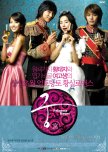
In each drama, their is a girl with very good qualifications who ends up moving in a socially awakward -yet accomplished- man.
This living arrangement will lead to a marriage of convenience.
This living arrangement will lead to a marriage of convenience.

If you want to see another social commentary regarding gender roles and marriage in Japanese society, Nigeru wa Haji da ga Yaku ni Tatsu handles it very well, is a lot lighter with no controversial elements, and really dives deep on the concepts of housework and valued work in society/relationships. Kareshi wo Loan is considered more controversial and definitely has some darker elements.

Remind me of Yokohama Ryusei drama....& still 1 of my favorite drama....If you like this genre this is a must watch romance comedy drama.


Both comedies revolve around a couple who end in a Marriage Of Convenience. The male leads end up falling for the cute female lead by the end from their interactions with her. The ending is different enough, however, so be ready.

Two people decide to marry because it's more convenient (as well as financially more stable)
Yet main leads start to become closer over living together.
Yet main leads start to become closer over living together.

25-year-old Moriyama Mikuri graduated but had no job offers. She became a temporary employee but was even laid off. So while she is taking a break right now, Mikuri feels unwanted and displaced. She starts work as a housekeeper for bachelor Tsuzaki Hiramasa by chance. One day, he proposes a contract marriage to her. The two of them get married in secret, but will their married life work out?

The similarities:
Simple ,beautiful and bright female lead
Quick marriage contract/arranged
Love after marriage
Simple ,beautiful and bright female lead
Quick marriage contract/arranged
Love after marriage


Takenouchi plays an aquarium employee named Kengo, who seems ordinary at first glance but actually possesses a secret that he would sacrifice everything in order to protect. Meanwhile, Ueto plays Risa, a young woman working in the sex trade in order to pay off her brother's debt, though her situation has led her to contemplate suicide. These two characters, both full of despair, meet each other and end up entering a contract marriage purely for its benefits. However, as they overcome various troubles, their relationship begins turning into true love.


Yuki Rio, the daughter of an old, prestigious family in Kyoto with over 1,000 years of history, enters into an arranged marriage at the age of 16 with a man she’s never met. Her husband is Takamine Masatomo, a handsome CEO in the IT industry. Every year on her birthday, she would receive 50 million yen, making their relationship one based solely on money. One day, after ten years had passed with no contact, Rio decided to move to Tokyo. She asks her husband, whom she’s meeting for the first time, for a divorce. On the other hand, Takamine finds himself unexpectedly attracted to Rio and doesn’t want a divorce. Thus begins a romantic battle between a wife who wants a divorce and a husband who refuses to let her go.


Both are about "Contract Marriages". Both start off the relationship because of its mutual benefit. They eventually learn to Love as they face the trials and tribulations of doing life together. Nigeru wa Haji is more light hearted while HapiMari is more dramatic, but both have their really cute heartwarming and funny moments.




































